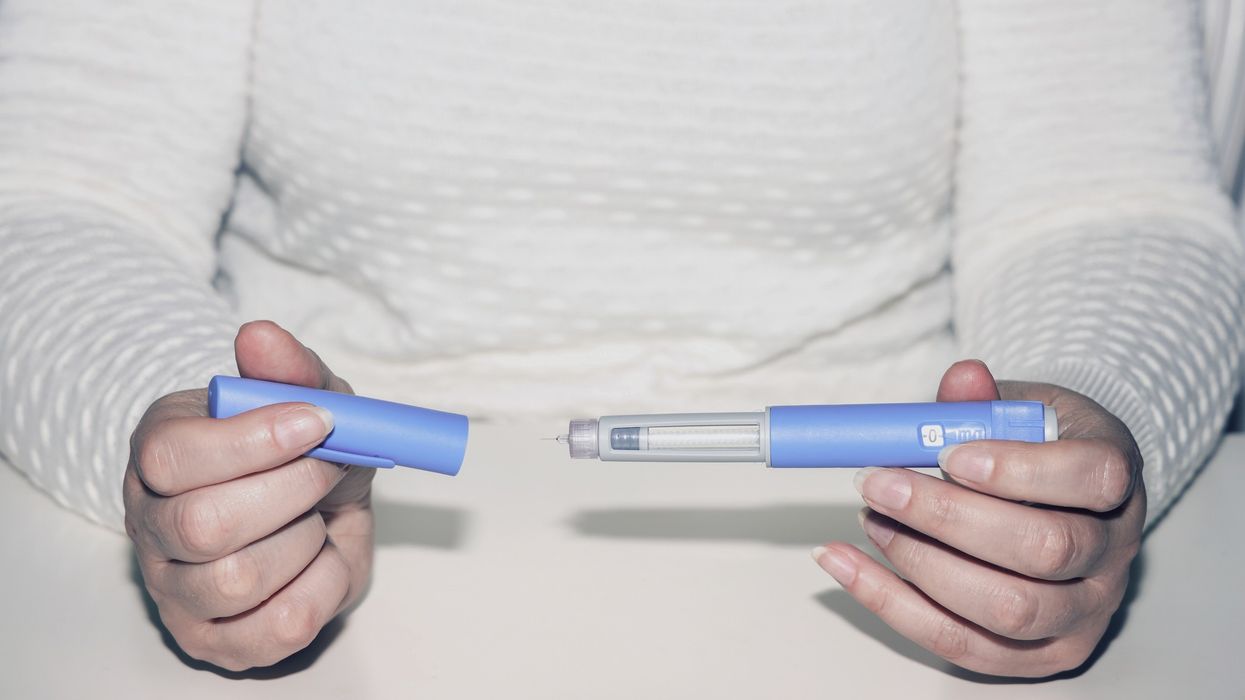Key points
- Almost 400 reports of acute pancreatitis linked to weight loss and diabetes jabs have been filed in the UK
- Most cases involve popular GLP-1 drugs including Ozempic, Wegovy, and Mounjaro
- Health officials are investigating possible genetic causes behind the side-effects
- Patients hospitalised with pancreatitis encouraged to report symptoms via MHRA’s Yellow Card scheme
- Adverse drug reactions cost the NHS an estimated £2.2bn annually
Health watchdog investigates spike in serious side-effects from GLP-1 drugs
UK health authorities have launched a study into the side effects of popular weight loss and diabetes drugs following a spike in reported cases of acute pancreatitis. Nearly 400 reports have been received via the Medicines and Healthcare products Regulatory Agency’s (MHRA) Yellow Card scheme, which monitors side effects and adverse reactions related to medicines and medical devices.
The medicines involved are GLP-1 receptor agonists – including semaglutide (marketed as Ozempic and Wegovy), liraglutide, and tirzepatide (branded as Mounjaro). The Yellow Card data shows that 181 of the cases involved tirzepatide alone.
What is acute pancreatitis?
Acute pancreatitis is a sudden inflammation of the pancreas, the gland located behind the stomach that helps with digestion. Symptoms typically include severe abdominal pain, nausea, and fever, and the condition often requires hospital treatment. In rare cases, it can be fatal.
Though pancreatitis is listed as an “uncommon” side-effect of GLP-1 medications in patient information leaflets – meaning it may affect around one in 100 people – the MHRA has seen a notable rise in reported incidents, particularly in 2025.
Since the start of the year, there have been 22 reports involving semaglutide (Ozempic and Wegovy) and 101 involving tirzepatide (Mounjaro).
Study launched to explore potential genetic link
To understand the possible causes of these side effects, particularly in light of rising usage of these medications, the MHRA is inviting affected patients to take part in a research study through the Yellow Card Biobank. The initiative, run by Genomics England, will collect saliva samples and other data to explore any genetic factors that may be influencing patient response to GLP-1 drugs.
An MHRA spokesperson stated: “Alongside increased usage, we are seeing an upturn in the number of Yellow Card reports mentioning GLP-1 medicines and acute pancreatitis.”
While no known genetic link has yet been established, the MHRA said genetic variations could help explain why some patients experience adverse reactions to certain medications. The agency is urging both patients and health professionals to report suspected side-effects related to these drugs.
Adverse reactions place burden on NHS
Research shows that one in six hospital admissions is caused by an adverse drug reaction, and around a third of those could potentially be avoided through genetic testing. The financial cost is also significant – the NHS spends over £2.2 billion each year on hospital stays linked to adverse reactions alone.
Dr Alison Cave, chief safety officer at the MHRA, highlighted the need for more personalised approaches to medicine: “Evidence shows that almost a third of side-effects to medicines could be prevented with the introduction of genetic testing.”
Manufacturers respond to rising concerns
In response to the reports, drugmakers Lilly and Novo Nordisk reiterated their commitment to patient safety and advised that side effects should always be reported and discussed with healthcare professionals.
A spokesperson for Lilly, which manufactures Mounjaro, said: “Patient safety is Lilly’s top priority. We take reports seriously and actively monitor, evaluate and report safety information for all our medicines.”
The Mounjaro leaflet identifies acute pancreatitis as an uncommon side-effect, advising patients to consult their doctor before using the drug if they have a history of the condition.
Novo Nordisk UK, which produces Ozempic and Wegovy, issued a similar statement: “Patient safety is of the utmost importance to Novo Nordisk… The known risks and benefits of GLP-1 medicines are described in the product information. We recommend that patients take these medications only for their approved indications and under the strict supervision of a healthcare professional.”
Both companies said they were continuously collecting safety data and working with authorities to ensure ongoing monitoring and understanding of their treatments.
What should patients do?
Health officials are encouraging patients who have experienced severe symptoms such as abdominal pain, nausea, or fever after taking these medications to report their experiences to the Yellow Card scheme. Hospitalised individuals may be contacted to participate in the Biobank study.
While the overall safety profile of GLP-1 medicines remains positive, the MHRA has stressed the importance of vigilance as demand for these weight loss and diabetes drugs continues to grow.





